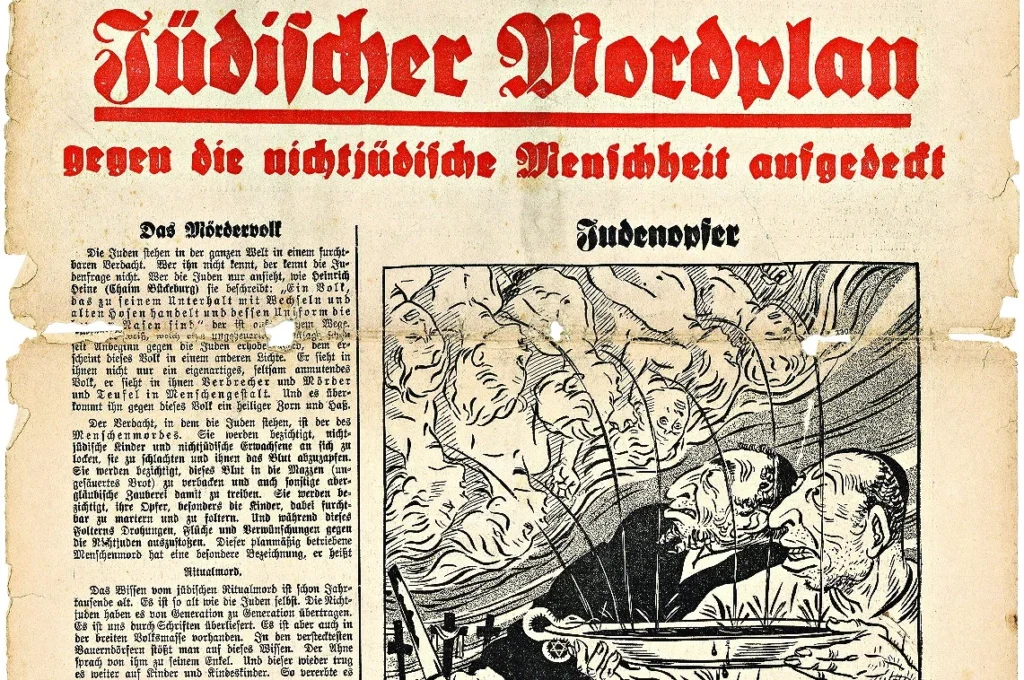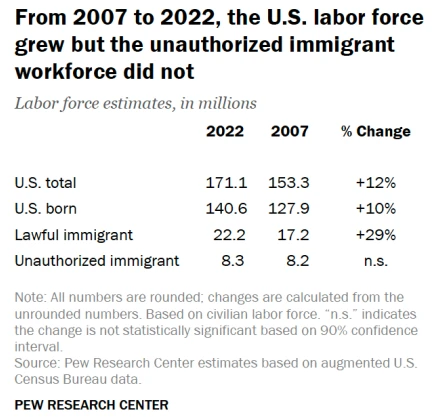The problem with Trump’s claim about Haitian immigrants is not just that it’s false. It is a dangerous blood libel that foments racial hatred.
Blood libel has a long and storied history. First deployed against early Christians in late antiquity, according to the Christian apologist, Tertullian, it consists of allegations that a particular group – a religious community, a race, a nationality – secretly engages in ritual human sacrifice, murder, incest, or other acts that deeply offend the governing morality of the day.
It wouldn’t resurface in written history for another thousand years, when, in the 10th century, it was alleged that Jews conducted ritual human sacrifice.
Ever since, claims that Jews require human blood to make Passover matzos, that Jews murder Christian children to drink their blood, and the Jews ritually re-enact the crucifixion of Jesus, have been a consistent undercurrent of the persecution of Jews.
Sometimes, these accusations – which were usually false – led to executions, or pogroms against entire communities.
The Nazis effectively used blood libel in their propaganda campaigns painting Jews as evil, conniving, murderous people who were a threat to upstanding, God-fearing citizens of the Reich.

Blood libel against Jews is still frequently repeated, though nowadays most often by Islamic extremists.
Demonisation
Demonisation akin to blood libel is commonly used as a tool to maintain, or oppose, ruling regimes. It is used to dehumanise out-groups, or “others”, and often happens with the complicity of establishment institutions such as governments, religious authorities, or news media.
The Satanic Panic of the 1980s, which persists today, during which people who did not conform with Christian orthodoxy were accused of “Satanic ritual abuse”, is an excellent example. To this day, no firm evidence that fits the pattern of Satanic ritual abuse has ever surfaced. (I’ll refer for a thorough debunking to a Christian research group.)
Demonising rhetoric has been used against homosexuals, transsexuals, AIDS sufferers, people with addiction or mental health issues, and people of other races, tribes, nationalities, or creeds.
The QAnon conspiracy theory employs blood libel when it claims the world is controlled by a cabal of Satanic paedophiles led by the Clintons, the Obamas, the Rothschilds, the Schwabs, the Soroses, the Gateses, and their associates.
Dehumanisation is one of the stages of genocide in the policy model created by Gregory Stanton, the founding president of Genocide Watch. Dehumanisation facilitates and excuses acts of aggression and violence,
Far more often, however, demonisation akin to blood libel is simply used to deny out-groups political rights, government services, work opportunities, or status in the community.
It also frequently serves the political purpose of creating scapegoats, especially for economic woes, and of smearing political opponents.
They’re eating the cats
This is exactly what happened when US presidential candidate Donald Trump, on a national debate stage, said: “They’re eating the dogs, the people that came in, they’re eating the cats. They’re eating the pets of the people that live there, and this is what’s happening in our country, and it’s a shame.”
These claims, centred on the town Springfield, Ohio, are unequivocally false.
Even Fox News calls the claims “unsubstantiated” and “false and inflammatory”. The conservative Wall Street Journal called it a “falsehood”, saying the origin was a Facebook post that cited the poster’s “neighbor’s daughter’s friend.”
That Facebook poster now regrets having made these claims.
Cathy Young, a contributing editor at Reason magazine, penned an in-depth account of how this hoax came to be, and how white nationalist themes and identity politics shaped (and arguably sparked) the story.
(No, a police report of a Haitian immigrant snatching geese, which did not lead to an arrest, is not evidence. A photo of a black man carrying a dead goose, which happened in a different town, is not conclusive evidence of widespread poaching. A story about a non-Haitian, non-immigrant mentally ill woman who killed and snacked on a cat in an entirely different town is not evidence that Trump spoke the truth. A guy on YouTube who claims to have seen Haitians in a van containing a hundred cats – have you ever tried to herd cats? – is not evidence that such a van really existed.)
Generalisation
It is important to establish that the commission of a crime by one, or some, members of a community do not reflect on the community as a whole. This is always the first stage in demonisation.
South Africa knows this rhetoric well. “The blacks” do this. “White monopoly capital” does that. “The Indians” are like that. “Why do the Coloureds have to be this way?” “Anti-apartheid activists are terrorists.”
Even if Trump had evidence that some Haitian immigrants in Springfield, Ohio had snatched pets for the cookpot, this would not have justified a broadside against all Haitians in Springfield, other Haitian immigrants, or immigrants in general.
Statistical studies have repeatedly shown that immigration, including illegal immigration, is not linked to higher levels of crime, but rather the opposite. Immigrants commit fewer crimes than natural-born US citizens.
One might as well attribute the assassination attempts against US presidents, or the sex crimes committed on Jeffrey Epstein’s private island, to “white people”.
That “Trump is only reporting what people are saying on the ground” is no excuse for repeating a blood libel.
Trump is consciously playing to the racist gallery with claims such as these. He didn’t make a mistake. It wasn’t an error. It is deliberate strategy. He is whipping up his white nationalist base against non-white immigrants, whether legal or illegal. He is demonising immigrants and playing identity politics to pander to white nationalist supporters.
At the same time, he is blaming his opponent, Kamala Harris, for the supposed immigration crisis, incorrectly referring to her as “the border czar”. (Harris was never in charge of border security or immigration policy; her role was diplomatic engagement with Central American countries to address the root causes of migration.)
Immigration
If one views immigration as a problem, one might be tempted to say the ends justify the means. If immigrants are slow or reluctant to assimilate, or some immigrants contradict the basic moral values upon which a society or nation is based, one might be sympathetic to claims that demonise them.
Yet immigrants (legal and illegal) account for only 13.8% of the US population. This is much more than the nadir of 4.7% in 1970, but less than the all-time high of 14.8% in 1890.
Of those, 77% are in the U.S. legally. This leaves 11 million illegal immigrants, which pales into insignificance compared to a total US employment number of 171.1 million at last count, and is only 3.25% of the total US population of 337 million.

In the 15 years between 2007 and 2022, the number of illegal immigrants in employment declined marginally, in nominal terms. Labour force numbers for both US-born and legal immigrant employees increased significantly during this period.
Given that the US unemployment rate is tracking near all-time lows below 4%, this hardly suggests that immigration, legal or otherwise, is a massive crisis.
Immigration contributes to the ongoing economic success of the United States. “Nationwide, immigrants are a vital force in powering the American job machine and keeping the U.S. economy humming,” writes Scott Horsley for NPR.
Springfield, Ohio, the epicentre of the Haitian pet-eating brouhaha, has also benefited from immigration: “Springfield, about 45 miles from the state capital of Columbus, suffered a steep decline in its manufacturing sector toward the end of the last century, and its population shrank as a result,” reported the Associated Press. “But its downtown has been revitalized in recent years as more Haitians arrived and helped meet the rising demand for labor as the economy emerged from the pandemic.”
Racism, not immigration
The Republican candidate for president, his running mate, and his acolytes are spreading accusations of uncivilised behaviour by immigrant communities they know to be false. This amounts to racist blood libel.
This suggests that their real problem with immigrant communities is not that they are illegal immigrants (which most aren’t), or simply that they’re immigrants (which is an economic boon), or that some of them commit crimes (which people from all communities do), but that they’re not sufficiently white and Christian, like “real Americans”.
“I go back and forth between thinking Trump is a cynical asshole like Nixon who wouldn’t be that bad (and might even prove useful) or that he’s America’s Hitler,” wrote Trump running mate JD Vance on Facebook in 2016.
He has clearly decided that Trump is just a cynical asshole and has coattails worth riding into high office. He’s wrong, though. He isn’t just a cynical asshole. He is dangerous and foments hate.
Decency
Christopher B. Kulp, writing for the Markkula Center for Applied Ethics at the Santa Clara University, argues that demonising political opponents undermines democracy, degrades public discourse, and “contributes to a climate of public ill will and distrust that magnifies our differences, hardens opposition, and makes productive dialogue immeasurably more difficult”.
I’ll leave him with the last word: “There is nothing weak or submissive, nothing traitorous or dishonorable, in showing decency to others. On the contrary, morality requires it, as does the welfare of our embattled democracy.”
Image: US presidential candidate and former president Donald J. Trump. Image by Ivo Vegter
The views of the writer are not necessarily the views of the Daily Friend or the IRR.
If you like what you have just read, support the Daily Friend

